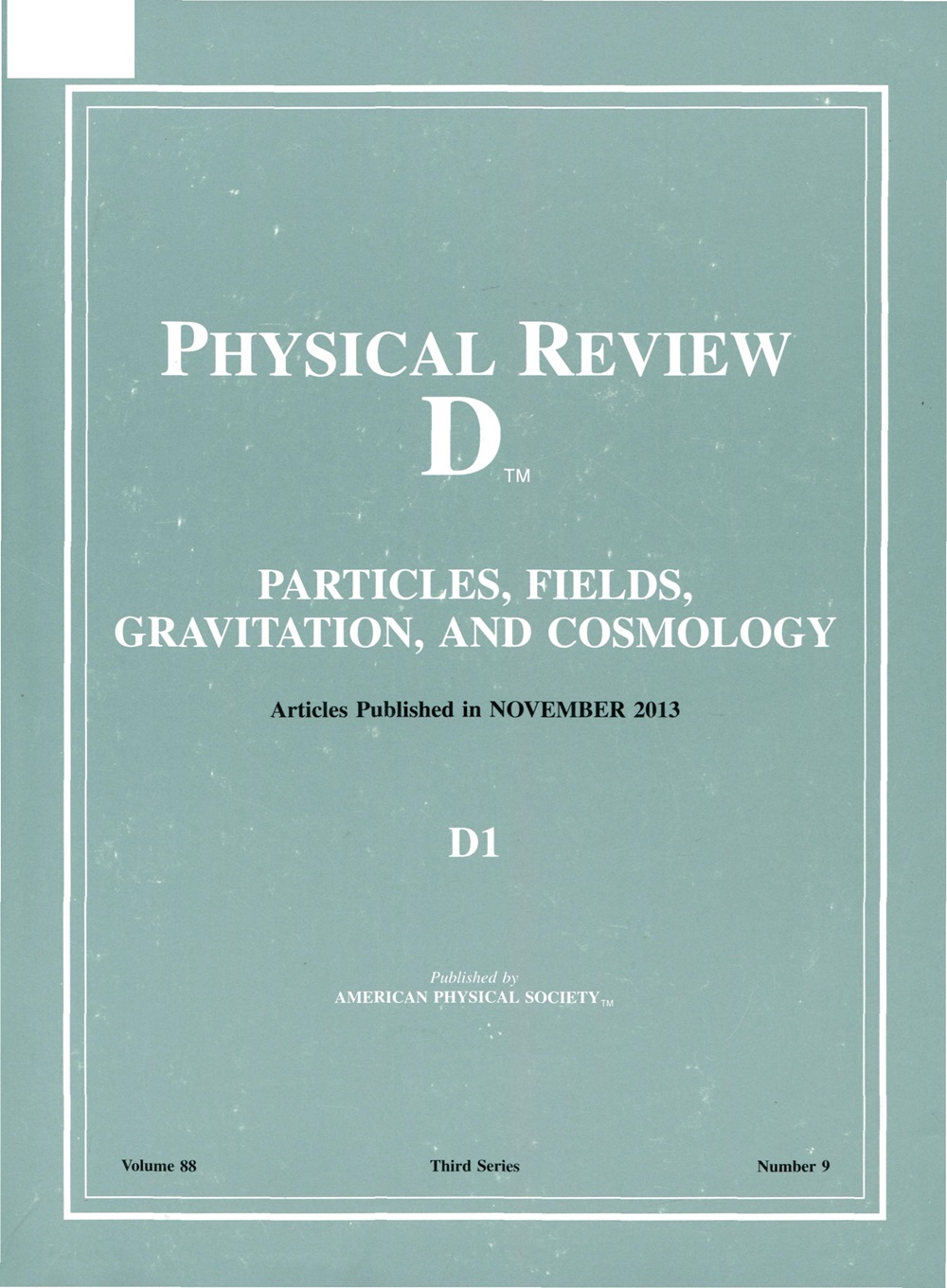用生成函数直接表示带洛伦兹指标的单环张量约简
IF 5.3
2区 物理与天体物理
Q1 Physics and Astronomy
引用次数: 0
摘要
在[]中,我们利用生成函数和Feynman参数化在射影空间中推导了单环张量约简的直接表达式,避免了递归关系。然而,对于实际应用,该表达式仍然面临两个挑战:1)虽然最终约简系数是用维数D和曼德尔施塔姆变量表示的,但给定的表达式显式地包含非理性函数;2)表达式包含一个辅助向量R,可以通过微分∂∂R来消除,但不合理项的存在使得微分变得繁琐;3)大多数实际应用需要具有洛伦兹指标的张量形式。本文给出了带洛伦兹指标的约化系数的一种不需要递推的合理形式。此外,我们还提供了代码的纯Wolfram实现。我们的实际测试表明,与传统的Passarino-Veltman约简或其他基于递归的方法相比,这种直接表达式的计算效率显著提高。2025年由美国物理学会出版本文章由计算机程序翻译,如有差异,请以英文原文为准。
Direct expression for one-loop tensor reduction with Lorentz indices via a generating function
In [], we derived a direct expression for one-loop tensor reduction using generating functions and Feynman parametrization in projective space, avoiding recursive relations. However, for practical applications, this expression still presents two challenges: 1) while the final reduction coefficients are expressed in terms of the dimension D and Mandelstam variables, the given expression explicitly contains irrational functions; 2) the expression involves an auxiliary vector R, which can be eliminated via differentiation ∂∂R, but the presence of irrational terms making differentiation cumbersome; and 3) most practical applications require the tensor form with Lorentz indices. In this paper, we provide a rational form of the reduction coefficients with Lorentz indices, free from recursion. Additionally, we provide a pure Wolfram implementation of the code. Our practical tests demonstrate that this direct expression achieves significantly higher computational efficiency compared to the traditional Passarino-Veltman reduction or other recursion-based methods. Published by the American Physical Society 2025
求助全文
通过发布文献求助,成功后即可免费获取论文全文。
去求助
来源期刊

Physical Review D
物理-天文与天体物理
CiteScore
9.20
自引率
36.00%
发文量
0
审稿时长
2 months
期刊介绍:
Physical Review D (PRD) is a leading journal in elementary particle physics, field theory, gravitation, and cosmology and is one of the top-cited journals in high-energy physics.
PRD covers experimental and theoretical results in all aspects of particle physics, field theory, gravitation and cosmology, including:
Particle physics experiments,
Electroweak interactions,
Strong interactions,
Lattice field theories, lattice QCD,
Beyond the standard model physics,
Phenomenological aspects of field theory, general methods,
Gravity, cosmology, cosmic rays,
Astrophysics and astroparticle physics,
General relativity,
Formal aspects of field theory, field theory in curved space,
String theory, quantum gravity, gauge/gravity duality.
 求助内容:
求助内容: 应助结果提醒方式:
应助结果提醒方式:


